HSBC holds event on Vietnam business outlook
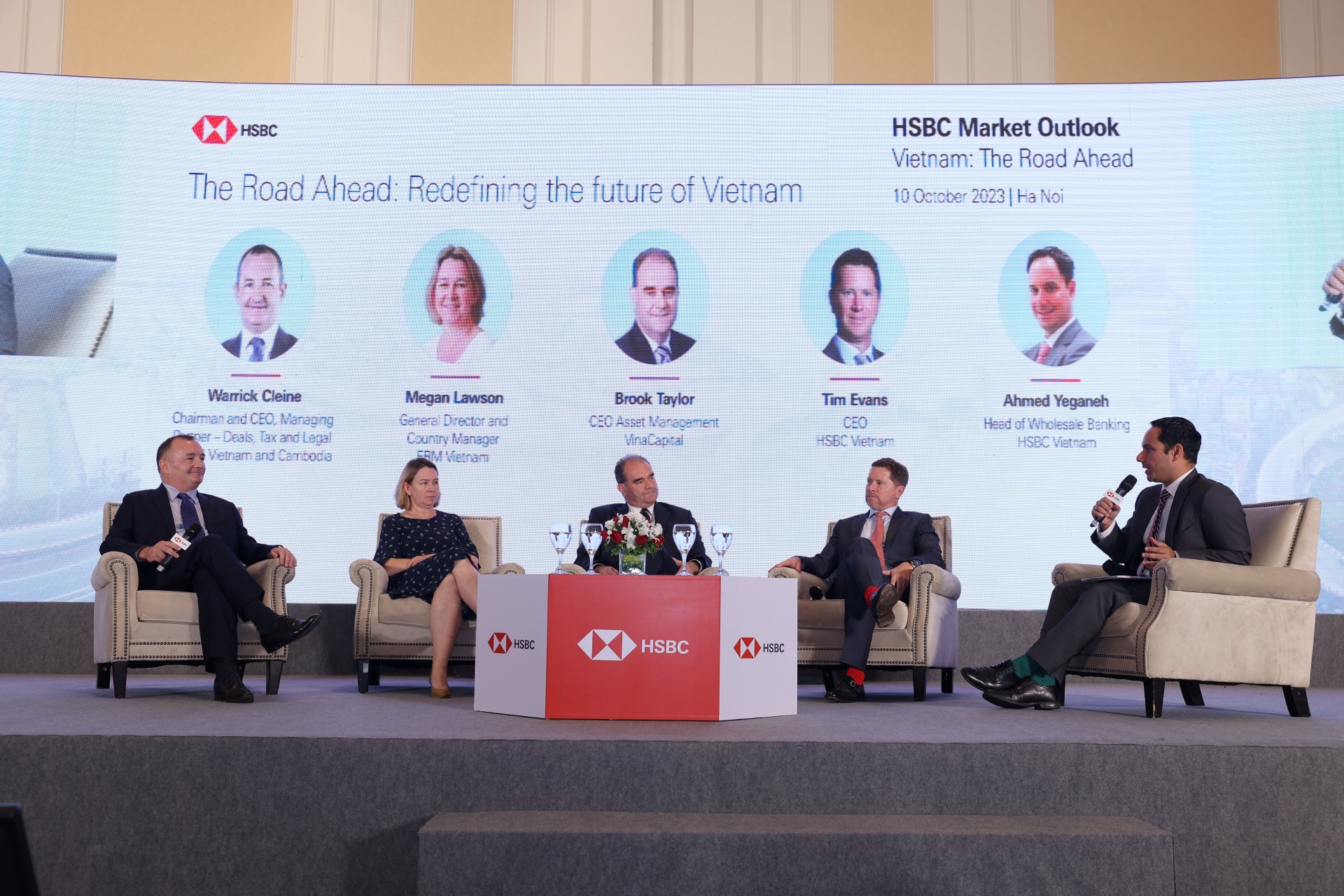 |
| Experts at the event discussed the country’s business outlook, strategies for managing instability, and positioning enterprises for future opportunities |
According to Tim Evans, CEO of HSBC Vietnam, Vietnam has shown remarkable resilience in the face of global economic uncertainties. With the current geopolitical difficulties, there is declining demand in Vietnam's major export markets.
“A lot of the markets that Vietnam exports to, primarily North America and the UK, see very high inflation. Consumer confidence has been impacted, with a very high cost of living caused by energy prices. And you will see a reduction in the amount of goods that Vietnam is able to sell,” he said.
Examining the economic developments in the first eight months of 2023, only in February and August did the Purchasing Managers' Index (PMI) reach 51.2 and 50.5, respectively, while for the other months, the PMI remained below the 50-point threshold.
Notably, the PMI for May 2023 plummeted to 45.3, the lowest level since November 2022, reflecting a decline in production, new order numbers, purchasing activities, and employment.
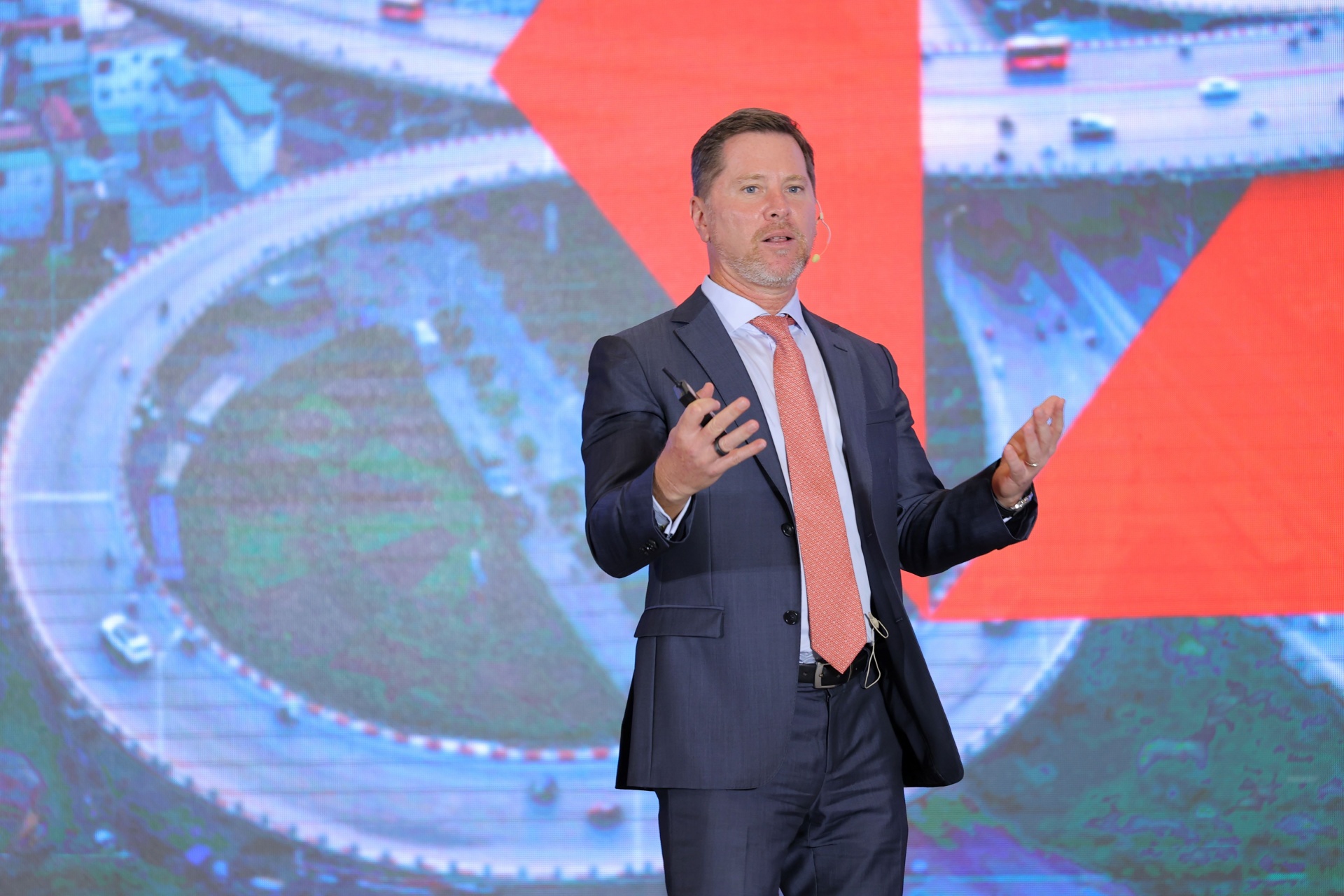 |
| Tim Evans, CEO of HSBC Vietnam, speaking at the event |
However, Evans highlighted several bright spots. Vietnam has signed 16 free trade agreements (FTAs), including 15 with G20 markets, which signals positive prospects for foreign direct investment (FDI). Vietnam is gradually transitioning from a cost-efficient manufacturing base to a rapidly growing consumer market, with a booming digital economy.
"By 2025, Vietnam's digital economy is projected to reach approximately $50 billion, making it the fastest-growing digital economy in Asia. By 2030, Vietnam is set to become the world's 10th largest consumer market, surpassing countries like Thailand, the UK, and Germany. In other words, Vietnam's economy is expanding," he said.
Frederic Neumann, Chief Asia Economist of HSBC Global Research, said Vietnam held several advantages due to a significant influx of FDI continuing to pour into Asia.
FDI in the ASEAN region has reached record levels, with significant inflows into Singapore, Vietnam, Thailand, and to some extent, Indonesia. FDI into India has increased, but not at the same pace as other countries.
“Vietnam possesses distinctive characteristics in terms of demographics, culture, and its economy. Vietnam has a relatively high working-age population, with ample time to enhance labour skills to accommodate demographic shifts. It's worth highlighting that Vietnam leads in the number of households with substantial assets, exceeding $250,000,” he said.
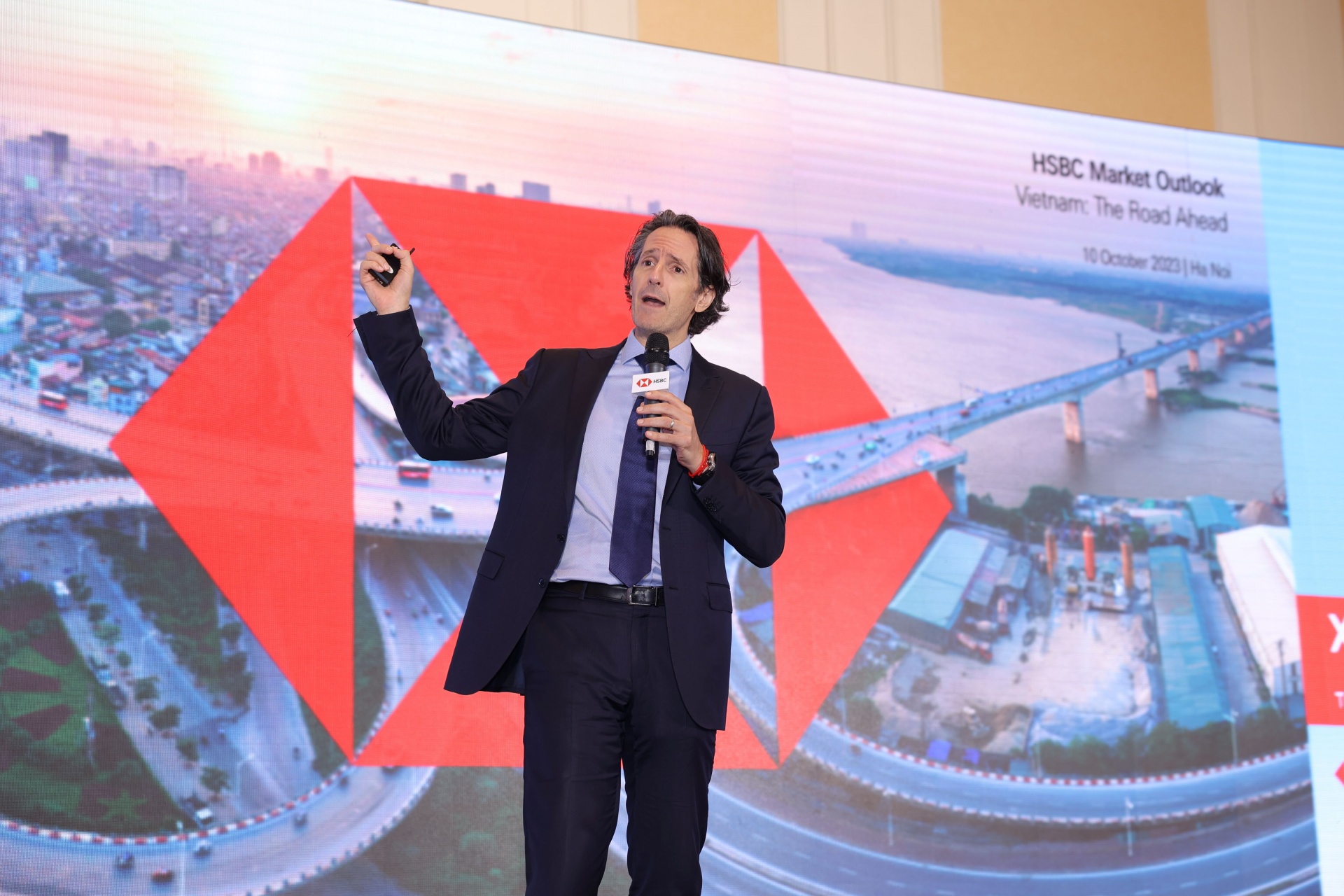 |
| Frederic Neumann, chief Asia economist of HSBC Global Research, speaking at the event |
Exports to China are on the rise, with trade surpluses in goods. In addition, Vietnam's tourism sector, ranking at the forefront of ASEAN in attracting tourists, remains a key growth sector even as trade in goods slows down.
"HSBC forecasts that Vietnam's GDP will reach 5 per cent in 2023, and with controlled inflation, 6.3 per cent in 2024. This is the highest in ASEAN, marking a remarkable achievement, and it’s only the beginning," Neumann said.
Brook Taylor, CEO of VinaCapital Asset Management, noted that the government has introduced numerous policies to revive the real estate market, and it is expected to recover. He emphasised the need for investors to assess the potential and growth prospects of companies when considering investment, along with evaluating their scale and technological applications.
“Vietnam boasts many strong businesses and numerous growth opportunities, supported by various factors, making it an attractive partner for comprehensive strategic alliances. The relationship between Vietnam and the US has evolved significantly,” he said.
As for the stock market, he assessed that it’s currently on the cusp of transformation and aims to become a promising emerging market.
"I'm impressed with the current government leadership, and hopeful that Vietnam will overcome the 'middle-income trap' to become a high-income country by 2025. There are headwinds, but over the past two decades, we've achieved significant progress. The poverty rate was previously at 20 per cent, and now it's only 1 per cent, a rate that very few countries have achieved so rapidly. Therefore, let's maintain our confidence," he said.
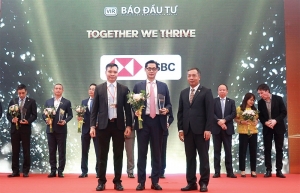 | High-value investment of prime importance to advance Vietnam is leaning towards quality and more modern investing initiatives. Joon Suk Park, head of International Subsidiary Banking, Wholesale Banking at HSBC Vietnam, spoke to VIR’s Hong Dung about the key sectors for high-value funding in this country. |
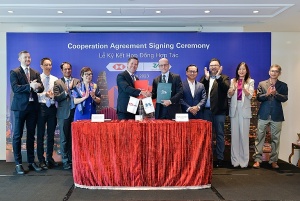 | HSBC Vietnam partners with Dragon Capital on voluntary retirement programme HSBC Vietnam and Dragon Capital Vietfund Management (Dragon Capital) have announced their cooperation to implement the Huu tri an vui pension programme, a voluntary supplementary retirement scheme for all HSBC employees in Vietnam. |
 | Green investment requires collective efforts from all Sustainability is taking centre stage in Vietnam’s development plan. Amanda Murphy, head of Commercial Banking for South and Southeast Asia at HSBC Asia-Pacific, discussed with VIR’s Luu Huong the pivotal role of public-private partnerships in facilitating green financing tools and emphasises the importance of clear policymaking for sustainable investments. |
What the stars mean:
★ Poor ★ ★ Promising ★★★ Good ★★★★ Very good ★★★★★ Exceptional
Related Contents
Latest News
More News
- Mondelez Kinh Do renews the spirit of togetherness (February 06, 2026 | 09:35)
- Seafood exports rise in January (February 05, 2026 | 17:31)
- Accelerating digitalisation of air traffic services in Vietnam (February 05, 2026 | 17:30)
- Ekko raises $4.2 million to improve employee retention and financial wellbeing (February 05, 2026 | 17:28)
- Dassault Systèmes and Nvidia to build platform powering virtual twins (February 04, 2026 | 08:00)
- The PAN Group acquires $56 million in after-tax profit in 2025 (February 03, 2026 | 13:06)
- Young entrepreneurs community to accelerate admin reform (February 03, 2026 | 13:04)
- Spring Fair 2026 launches national fair series (January 30, 2026 | 16:17)
- SnP celebrates 10th anniversary with new brand identity (January 30, 2026 | 14:41)
- Sci-tech sector sees January revenue growth of 23 per cent (January 30, 2026 | 11:20)

 Tag:
Tag:




















 Mobile Version
Mobile Version